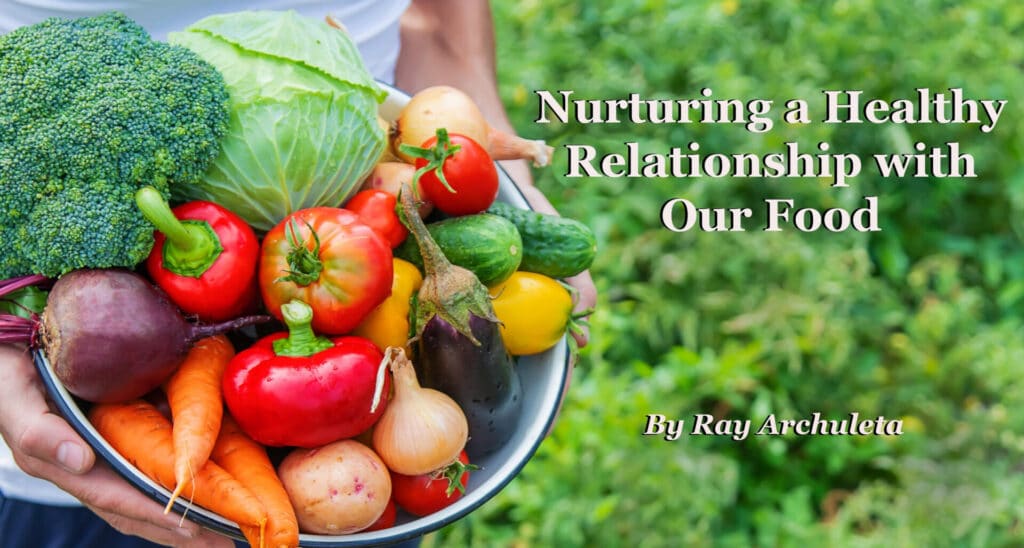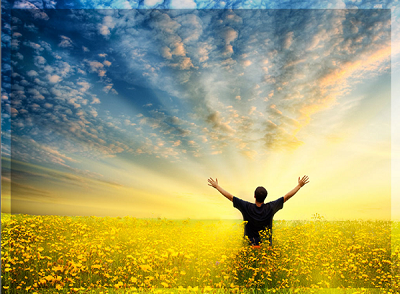By Ray Archuleta, Understanding Ag, LLC
Food is relationship
In my previous blog, I examined several institutional, philosophical and educational issues that have created unintended social distancing in agriculture. In this article, I want to shift the focus to examine another type of “social distancing.” This one involves the “relationship” we have with our food.

Food is life, medicine, and health. When you do not grow your own food, you lose a sense of relationship and gratitude to the land. In many countries throughout the world, breaking bread is a cultural and social experience. In fact, good food can be forgiveness. A very good saying, I once read proves my point: “If you invite family members that you dislike to dinner, but, if the “Food” is delicious, healthy, and well prepared, you might even forgive them.”
Stop the social distancing from agriculture

Following are eight simple ways each of us can stop our social distancing from agriculture. Each action helps us build a closer relationship with our food, farms and the elegant, natural system that enables the life we enjoy.
BUY YOUR FOOD FROM LOCAL FARMERS AND RANCHERS. Seek food from farmers who mimic nature in their systems and have the correct “WHY” in their lives. These are the farmers who care about the land, animals, people, and want to provide nutrient dense food to their customers. Make sure they apply the six soil health principles in their operations. These producers are the type of people that will raise animals and grow plants regeneratively.
EDUCATE YOURSELF. Attend a Soil Health Academy and seek to understand how your food is grown and raised. Watch our YouTube videos on regenerative agriculture. Read Gabe Brown’s book, Dirt to Soil .
IF YOU ARE CURRENTLY SICK OR UNHEALTHY, start by eating healthy, nutritious food. Eat real medicine. Eat fermented food. Cook your food at home. Stop eating processed foods. In the words of Hippocrates, “Let thy food be thy medicine and medicine your food. Your body is self-healing, self-organizing, and self-regulating organism and needs good food to carry out these processes. Help your body heal itself. The best type of medicine is preventive medicine. Current research shows that zinc and selenium are great immune boosters for the human body. Good healthy food will have higher levels of these minerals to ward off illness. Strive to grow healthy soil which will allow you to grow healthy food.
TURN YOUR LAWN INTO A GARDEN. Connect your family to the land by planting a no-till garden. Read Gabe Brown’s Blog, “Time to Garden.” Teach your children how to connect to the earth with the soil. Let your children touch the soil. Be careful not to damage your skin’s microbial community with too much hand sanitizing lotions. We have a habitat of microbes on our skin. The skin’s microbes work like a protective barrier from pathogenic microbes and prevent overgrowth of opportunistic pathogens. There is emerging scientific evidence- humans exposed to external environments: soil, animals, and the natural systems have healthier external microbial biomes inside and outside their bodies. Plus, healthy food contributes to a healthy gut biome.
STAY POSITIVE, smell the soil. When you smell the strong earthy scent called Geosmin (created by soil bacteria) it will improve your mood. This natural chemical manufactured by soil biota- stimulates brain endorphins that will temporarily improve your mood. If you want a more permanent change to your attitude, pray and meditate. It is well known that prayer and meditation are highly effective in ameliorating the impact of traumatic and negative events, according to Dr. Paul Hokemeyer. The COVID 19 virus has created global trauma throughout the world. This is a great time to reflect on what is really important.
UNDERSTAND THAT TECHNOLOGY WILL NOT SAVE US, but loving communities and relationships can. Albert Einstein said, “I fear the day that technology will surpass our human interaction. The world will have a generation of idiots.” The COVID19 pandemic reminded me how horribly wrong most of the computer models were for predicting the death rate of this virus. It is impossible to predict perfect outcomes in living, dynamic systems. This is why this statement is very true: “All models are wrong, some are useful.” These models are tools, but at the end of the day, we still need contextual wisdom: “The societal whole is greater than the one individual.” Good example of community: The great sacrifices of war veterans, first responders, police, and health workers continue to prove this point. Models cannot predict what humans will do when in crisis. Under severe drought, nature does not compete, but it collaborates. In general, I believe humans will do the same.
STOP HIDING INDOORS! The current physical distancing provides a great opportunity…” is a great opportunity to commune with the soil, sunshine, fresh air, and your family. Do not allow fear to dominate your life. Fear is nobody’s friend. Instead fill your life with kindness, gratitude and love. Where love rules there can be no fear, no hysteria, and no panic pandemic.
BE CONTAGIOUS, share the hope of the regenerative ag movement with all who will listen. Help this movement to “go viral.” Put your time and money into regenerative agriculture. Together we can help heal the planet. Remember, the land will be healed one heart and one mind at a time.
Finally, I want you to leave you with a quote from Gus Speth who wrote: “I used to think the top environmental problems were: biodiversity loss, ecosystem collapse, and climate change. I thought that with 30 years of good science we could address these problems. But I was wrong. The top environmental problems are selfishness, greed, and apathy….and to deal with those we need a spiritual and cultural transformation—and we scientist’s don’t know how to do that.”
Once this COVID19 pandemic is diminished, we will need a social closeness that will give us a different view of agriculture and our relationships with each other and our food.
